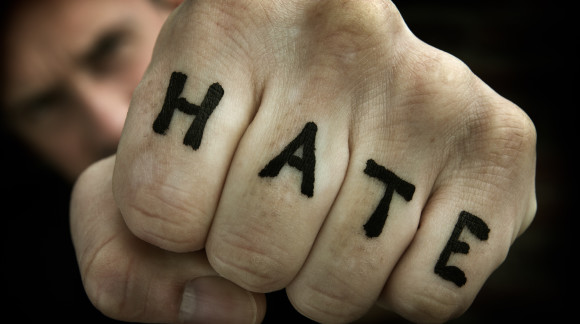Internment Camps in America?

The U.S. and Internment Camps: Repeating History?
The U.S. constitution guarantees citizens certain individual rights, but when someone exercises those rights, other people are often affected. For example, a group of protesters who gather in a public street are exercising their freedom of speech, but they may be blocking traffic.
Other people have the right to walk and drive freely on that street. Situations like this are why the U.S. has adopted laws regulating the times and places for public demonstrations. Laws provide order to our daily lives. Our government tries to balance our individual rights against the rights of other people in order to live in a safe and orderly way.
Regulation v. Rights
Our government (local, state, or federal) is in charge of enforcing that balance. There are a lot of tools available to control behavior, from charging small fines to putting someone in jail, but what tools should government use to keep the peace? When should the government step in to provide aid? Americans have been debating the balance between government regulation and individual rights for years.
If someone commits a crime, most expect a government entity, whether a local police officer or federal district judge, to rectify or control the unruly behavior. If it is a serious crime, we expect the criminal to be arrested and sent to jail or prison.
This is the order of our society and most would agree that it is important.
However, government can use and abuse their power to establish order in ways that impede individual rights. Some citizen’s worry that giving government (U.S and others) the power to confine people enables them to use that power to punish based on political dissent. This fear is where the term “internment camp” was derived from. An internment camp is a place of confinement by a government for reasons other than committing a crime. Would our government do this now to U.S. Citizens.? The answer is yes.
During World War II, the U.S. government operated internment camps for people of Japanese ancestry. Many were U.S. citizens. You can see an example of the camps at the Manzanar National Historic Site in California. Today our country is embarrassed of these actions, but in the 1940s there was a fear that Japan would invade the west coast.
In a controversial decision, Korematsu v. United States, the U.S. Supreme Court affirmed the power of the military to act as a matter of national security. Fred Korematsu conviction in the case, however, was later invalidated by a federal court.
U.S. citizens of Japanese descent were detained in camps. The order was coming straight from the U.S. government—this is what many fear too much government power can result in.
A recent article in Foreign Policy magazine described the fears of some that the U.S. government could confine people in internment camps again. This notion comes from a leaked army document that describes techniques for “mass detention” of civilians. According to the article, many of these techniques were developed to deal with refugees in Vietnam, Iraq, and Afghanistan.
A Solution
The only solution to preventing the implementation of internment camps and excess government intervention is to continue to have this conversation. Education about our country’s past is the best preventative method we can practice to ensure the government does not need to be in a situation where internment camps would seem like a plausible solution.
The balance between individual rights and government intervention will continue to be a grand narrative in the arena that is American politics. As citizens, we want our government to have the tools to maintain public order and safety, but we also want to preserve our individual rights.
It is a difficult balancing act—one that will likely not be resolved soon.
Additional Resources
- Is America Repeating History, by Debate.org
- Find Your Representative at House.gov
- Japanese-American Internment camps, by Bookmice.net
- The Internment Camp Solution, by Tom Chatham
- Modern Concentration Camps, by Don Bradley at theforbiddenknowledge.com
- What is the Law of the Land, by Livertyforlife.com
- The American Holocaust, by Willie Martin at Libertyforlife.com
- Why Individual Rights, by Aynrand.org
- Guns Banned by the Proposed Assault Weapons Band of 2013, by Usgovinfo.about.com
- Iron Curtain Descends in The United States of America, by Sher Zieve at Gulagbound.com
Videos
- Elite Emergency Data, by Lindsey Williams, YouTube
- 72 Hour Red Flag before U.S. Martial Law, by WakeUpcall, YouTube
- FEMA Concentration Camps, by FilippoiBellolv, YouTube
- Death Camps, (VHS) by Amazon.com
- Nazi Concentration Camps, by Mary Jensen at About.com
- Japanese Internment WWll, by WN.com
- Obama Justifies FEMA Imprisonment of Civilians, by Coffeefication, YouTube
Books
- The Holocaust Scream, by Rachel Rosenberg (Survivor) and Robert Urban M.D. at Amazon.com
- From a Name to a Number, by Alter Wiener at Amazon.com
- Abuse of Power, by Steven M. Greenhut at Amazon.com
- The Iron Curtain, by Anne Applebaum at Amazon.com
